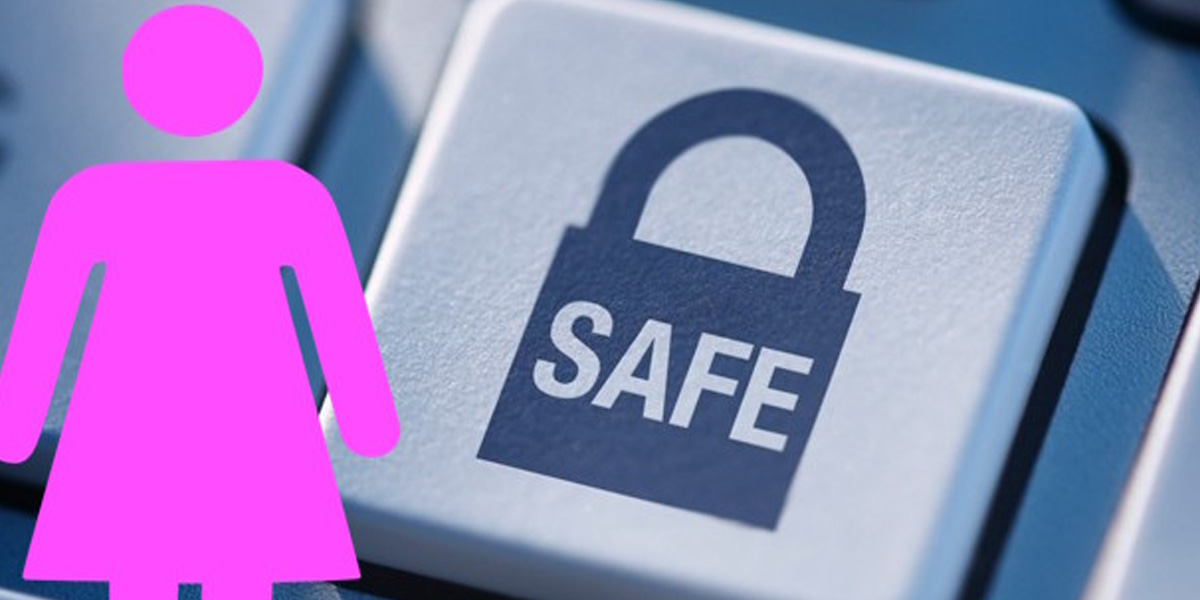The internet came with the promise of a wealth of opportunities, but unfortunately, instead of becoming a great equalizer, it has deepened gender-based inequalities and biases largely. Women, like all other places in Pakistan, aren’t safe on the internet as well, especially social media. The cyber atmosphere has become so uncongenial for women that Tim Berners Lee, the founder of World Wide Web, himself declared that, “The web is not working for girls and women.”

Women don’t only face cybercrimes on the web, in fact, they go through the pain of facing discrimination, biasness, misogyny and harassment. Talking of the cybercrimes that make women feel insecure and unsafe on the internet, activities like false impersonation, and identity theft (someone pretending to be a particular women for her character assassination), bullying, hacking (illegally getting access to a woman’s private data), solicitation, stalking, threatening women of rape, abduction and murder etc. are common around the globe and hinder women from using the internet and cyber space freely.
However, in Pakistan, women don’t just have to face these cybercrimes, in fact they have to face gender biases, misogyny, discrimination, and inequalities on the internet. They are constantly judged for the kind of attire they wear, the kind of body they have, and the kind of content they create or share (jokes on freedom of expression), moreover, they face hate comments and trolling, constant moral and religious policing, unsolicited advices and comments, body shaming, manipulation of photos, unnecessary criticism, and stigmatization. These practices have been largely normalized in our society and are the leading cause of several psychological problems in Pakistani women, including stress, depression, anxiety, low self-esteem, inferiority complexes, sleep issues and even suicidal behaviors.
Surprisingly, if women try to raise their voices against the irrational backlash they face online, which hinders them from cultivating a safe cyber space, they are told that they don’t have the right to complain, as they CHOSE and SIGNED UP for this when they created a social media account or entered the cyber space, which means that such anti-women practices are normal, in fact an essential component of the cyber world.

Though the Government of Pakistan has made excellent progress in law-making against cybercrimes. The National Response Center for Cybercrimes under FIA works to combat cybercrimes by enforcing technology based law, extending continuous professional training, ensuring effective internal accountability, encouraging use of technology and possessing an efficient feedback mechanism. However, no mechanism has been established to control the societal backlash and pressure that women face online. And as a matter of fact, the government cannot play a role as significant as we can play as individuals, in fighting these biases. Because the internet cannot become a safe place for women until the real world is. We cannot achieve a women-friendly cyber space when the world we live in is largely anti-women.
It is time we learn to accept women as they are and let them live however they want to live. To create a safer cyberspace, women should be trained to stand up against any injustice they face online, without the fear of facing societal criticism. Moreover, the cyber laws made by the government must be implemented to lessen anti-women cybercrimes and to promote a space where everyone is free to live according to their own will. Adopting and promoting values like acceptance, peaceful coexistence, and mutual harmony, uplifting each other, and standing against misogyny and chauvinism. Another critical move can be educating and training females to secure their data, and how to surf safely on the internet, how to respond to cyber bullying and other crimes can empower women to utilize this shared space safely.

